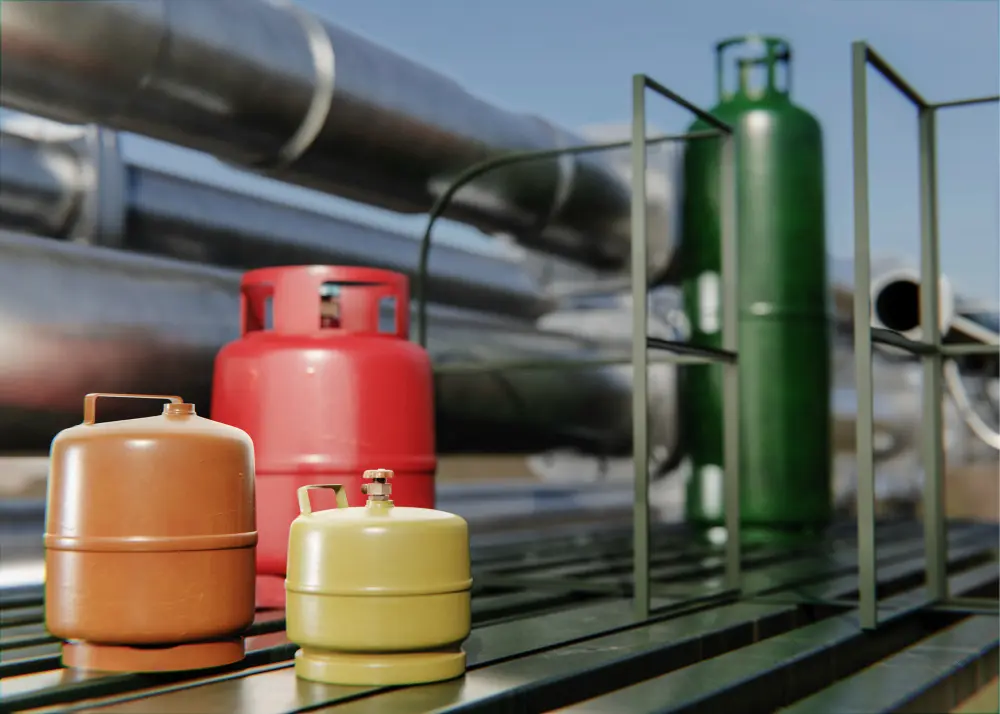In the dynamic landscape of industrial settings, ensuring a constant and reliable power supply is paramount. The choice of a power generation source plays a pivotal role in determining operational efficiency, cost-effectiveness, and environmental impact. Among the various options available, propane generators have emerged as a compelling solution. This blog aims to delve into the advantages of utilizing propane generators in industrial settings, shedding light on their environmental benefits, cost efficiency, reliability, fuel accessibility, flexibility, and safety considerations.
Understanding Propane Generators
Understanding propane generators is essential for grasping their applicability in industrial settings. These generators operate by harnessing the combustion of propane, a versatile fuel derived from natural gas processing and crude oil refining. An industrial propane generator consists of a combustion engine linked to a generator, where propane is fed into the engine, converting its mechanical energy into a reliable electrical power source. This process sets industrial propane generators apart from alternatives such as diesel, gasoline, and natural gas generators. The utilization of propane offers distinct advantages, not only due to its cleaner combustion, but also in terms of fuel accessibility and ease of storage. Industrial propane generators are characterized by their ability to provide a consistent and dependable power supply, making them a strategic choice for various industrial applications.
The versatility of propane extends beyond its environmental benefits. Industrial propane generators are known for their adaptability, allowing businesses to scale power output based on specific operational needs. This flexibility positions them as a dynamic solution in industries with fluctuating power requirements. Furthermore, the convenience of storing propane on-site in tanks enhances fuel accessibility, reducing dependence on external infrastructure. This characteristic is particularly advantageous for industrial settings located in remote areas or where reliable access to traditional energy sources might be challenging. In essence, understanding the mechanics of industrial propane generators unveils a solution that combines reliability, environmental consciousness, and operational flexibility, making them a pragmatic choice for powering industrial operations.
Environmental Benefits
One of the standout features of propane generators is their environmental friendliness. When burned, propane produces significantly lower emissions compared to traditional fossil fuels like diesel or gasoline. This results in a reduced carbon footprint, aligning with the growing emphasis on sustainable practices in modern industries.
The environmental advantages extend beyond emissions reduction. Propane combustion generates fewer greenhouse gases, contributing to cleaner air and a healthier working environment. Furthermore, propane is a non-toxic fuel that poses minimal risk to soil and water, enhancing its appeal as an eco-conscious choice.
Compliance with environmental regulations is a crucial consideration for industrial facilities. Propane generators offer an attractive solution, helping businesses meet stringent emissions standards and sustainability goals. Investing in propane-powered systems can be a strategic move to align with evolving environmental regulations and demonstrate corporate responsibility.
Cost Efficiency
In addition to their environmental benefits, propane generators offer compelling cost advantages. A comprehensive cost comparison reveals that, while the initial investment might be similar to other fuel types, the operational costs associated with propane generators are often lower.
Propane is generally more cost-effective than diesel or gasoline, and its pricing tends to be more stable. This stability ensures predictability in budgeting for fuel expenses, allowing businesses to plan more effectively for the long term.
Moreover, the potential for government incentives or tax benefits further sweetens the deal for businesses considering a switch to propane generators. Governments worldwide are increasingly promoting clean energy solutions, and businesses embracing propane may qualify for financial incentives, helping to offset initial costs and expedite the return on investment.
Reliability and Durability
Industrial operations demand a consistent and reliable power supply. Propane generators excel in providing a stable power output, minimizing disruptions to critical processes. Unlike some renewable energy sources, propane generators can operate continuously, ensuring a reliable power supply even in adverse weather conditions or during prolonged grid outages.
The longevity of propane generators is another compelling factor. These generators typically have a longer lifespan compared to their counterparts, translating to reduced long-term costs. Additionally, propane engines require less maintenance, contributing to increased operational efficiency and minimized downtime.
Fuel Accessibility and Storage
Propane’s widespread availability makes it an attractive fuel source for industrial generators. Unlike natural gas, which may require connection to a gas pipeline, propane can be stored in tanks on-site, offering greater flexibility in terms of generator placement.
The ease of storing and transporting propane further enhances its appeal. Businesses can maintain sufficient fuel reserves on-site, reducing the reliance on external suppliers and infrastructure. This independence in fuel management ensures uninterrupted power supply, particularly in remote or off-grid industrial locations.
Flexibility in Applications
Propane generators offer versatility in meeting the diverse power needs of industrial settings. Their ability to scale power output based on demand makes them suitable for various applications, from powering critical equipment to serving as reliable backup systems during peak demand or emergencies.
The flexibility of propane generators is particularly beneficial for industries with fluctuating power requirements. Whether it’s a temporary increase in production or unexpected spikes in energy demand, propane generators can adapt to the changing needs of the industrial environment, ensuring uninterrupted operations.
Safety Considerations
Safety is a paramount concern in industrial settings. Propane generators are equipped with advanced safety features, making them a secure choice for power generation. Propane has a high ignition temperature, reducing the risk of accidental fires. Additionally, propane generators incorporate automatic shut-off mechanisms in case of malfunctions, adding an extra layer of protection.
Comparatively, propane is considered a safer fuel option than gasoline or diesel. It is non-toxic, posing minimal risk to human health and the environment. Proper training and adherence to safety guidelines further enhance the overall safety of propane generator operation, making them a reliable and secure choice for industrial facilities.

In conclusion, the advantages of using propane generators in industrial settings are multi-faceted. Their environmental benefits, cost efficiency, reliability, fuel accessibility, flexibility, and safety considerations make them a compelling choice for businesses seeking sustainable and efficient power solutions. As industries worldwide strive to align with green practices and optimize operational costs, propane generators emerge as a pragmatic and forward-thinking option. Investing in propane generators not only positions businesses as environmentally responsible but also ensures a robust and dependable power supply for sustained industrial success.













